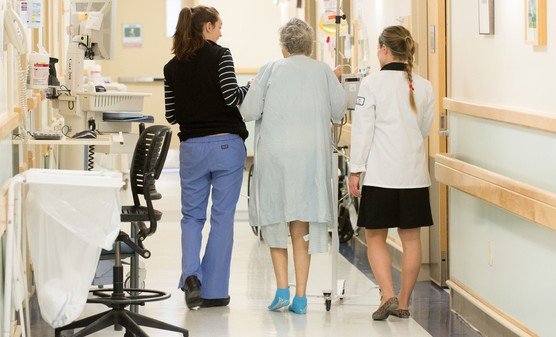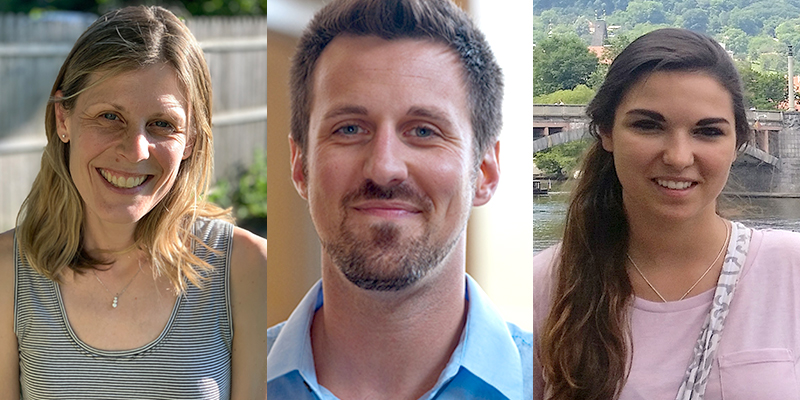The United States faces a shortage of as many as 90,000 physicians by 2025, according to the Association of American Medical Colleges.

In 2013, there were about 767,000 doctors practicing in the United States, according to the report. Although physician supply is projected to increase modestly between 2013 and 2025, demand will surpass those projections.
The physician shortage is exactly why Aaron Landau is pursuing a medical career and planning to go to medical school. It’s also why he is more interested in family or emergency medicine than a highly specialized field. Rather than working behind the scenes doing research and seeing only a handful of patients, Landau is interested in being on the front lines of medicine.
Taking the next step in his medical career
Landau, who graduated from Boston University in 2012 with a degree in psychology and philosophy, completed the UVM Post-Baccalaureate Premedical Program in May. We talked to the New Jersey native about his desire to not become overly specialized and why he changed his original career goal of becoming a clinical psychologist.
What have you been doing since completing the Post-Bac program at UVM?
I’m working as a scribe in an emergency department in Hoboken, NJ, doing real-time charting and documentation of doctors’ interactions with patients. I’m writing down everything as it is happening, which helps free up the emergency room doctors so that they have more time with patients. I’m also applying to medical schools and was recently accepted to Rutgers New Jersey Medical School. I’ll start medical school next summer.
Why are you drawn to working in medicine?
The training I’ll receive as a student and throughout my career will provide me with a skill set that is relevant in almost any context. Doctors and healthcare professionals in general can always be of service to their communities. As long as there are sick people, there’s a need for doctors. I also like a doctor’s role as a diagnostician, his or her ability to actively apply scientific knowledge toward assessing and treating patients. It’s science in action and very exciting for a nerd like me.
What are some challenges and rewards of this type of work?
Helping people and knowing I’m making a difference is something I find very rewarding. The challenges I expect come from practicing in the context of the very complicated US healthcare system, such as defensive medicine/malpractice, rising costs of care, dealing with uninsured/under-insured patients, and poor coordination with social services. These are issues that may make healthcare a particularly volatile field, but also an exciting one. I think there will be a lot of changes and improvements happening in my lifetime, and it could be exciting to be a part of those changes.
After graduating from BU, you worked at Massachusetts General Hospital in a psychiatric neuroscience lab. What did you learn from that experience?
I have always been interested in patient care, and I initially wanted to be a clinical psychologist. What I didn’t like about the clinical psychology career path was the pressure to specialize very early on. I also started to realize that my scientific interests expanded beyond the realm of psychology, and I wanted to take the time to learn more broadly about patient care before I committed to any field. Also, a lot of clinical psychology programs are very research heavy. I enjoyed my time doing research, but I would rather my training be focused on patient care, while still considering research as a career option.
What type of medicine do you want to study?
One thing that was appealing to me about this path was the fact that I don’t have to decide until later in my education, when I’m more informed. That said, I’m not so interested in becoming super specialized. I’d like to work in a field where there is need. The US has a huge shortage of primary care doctors, internists, emergency doctors, and psychiatrists, and I see myself probably pursuing one of those fields. I’m most interested in fields where I would be on the front lines, interacting with patients on a regular basis. That’s important to me.





